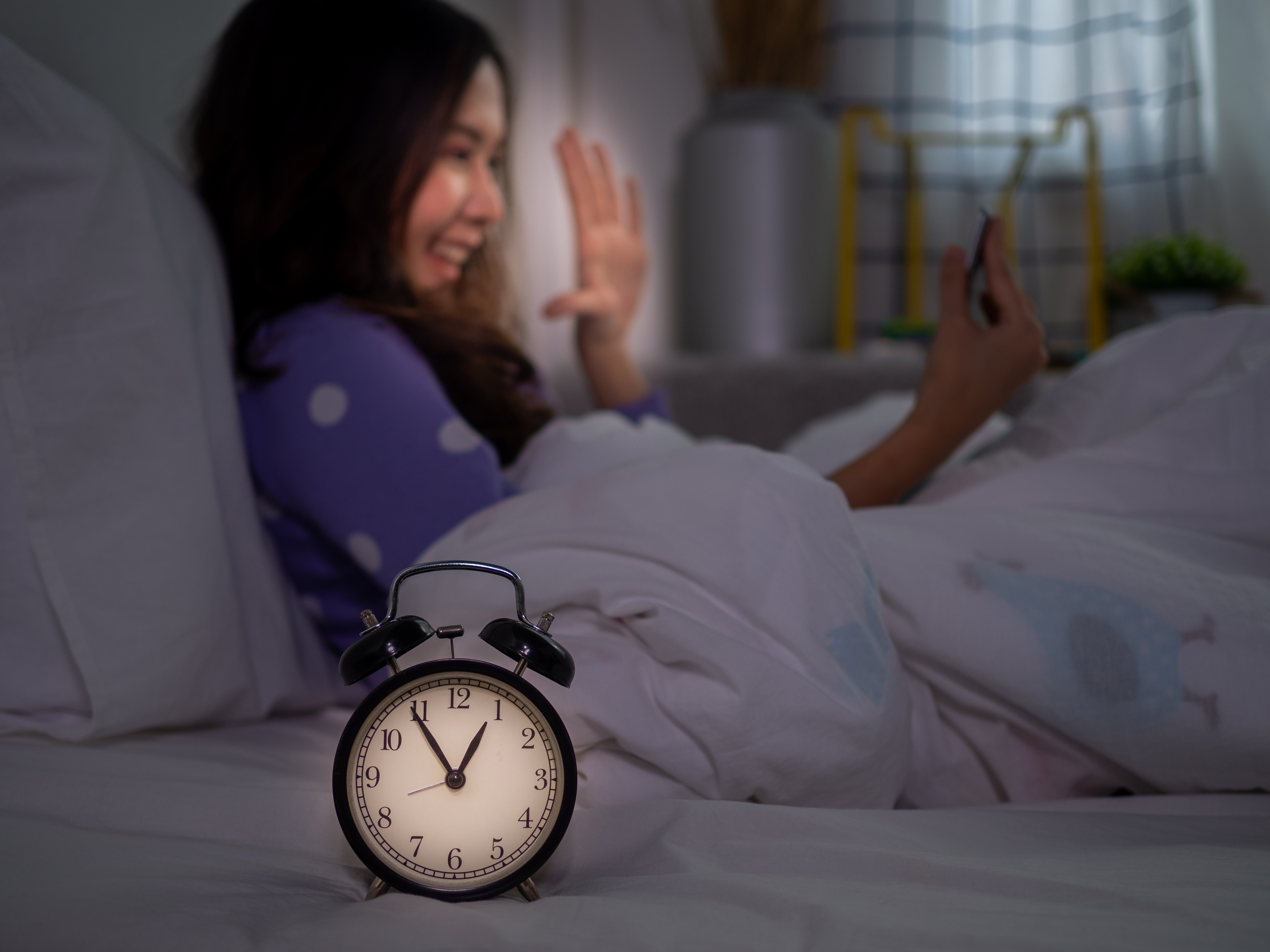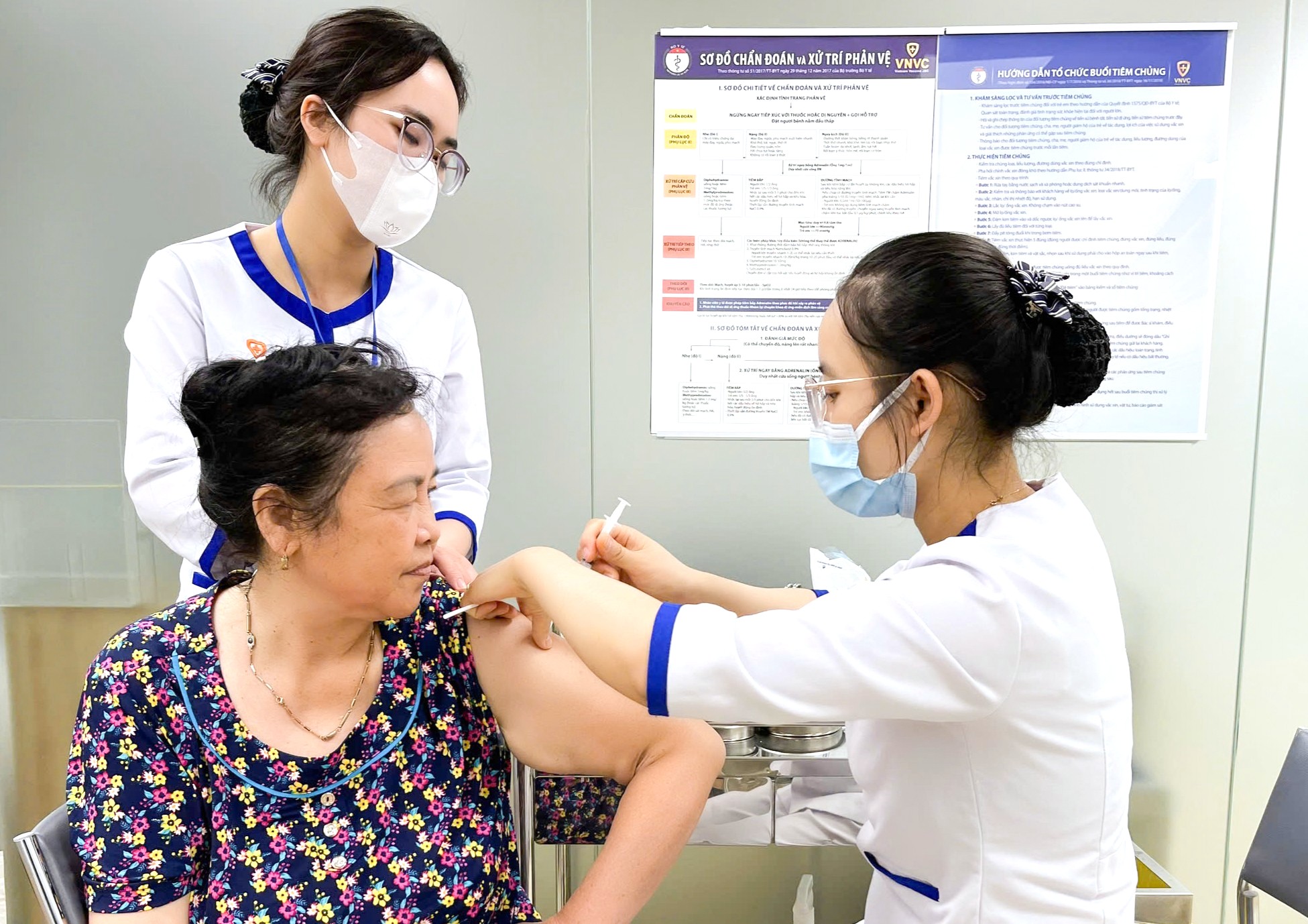According to Dr. Pham Dinh Dong, Medical Manager at VNVC Vaccination System, shingles is a reactivation of the chickenpox virus, Varicella Zoster (VZV). This virus lies dormant in the nerve ganglia after chickenpox recovery and reactivates when the immune system weakens or under favorable conditions such as older age, chronic illnesses like cancer, diabetes, depression, use of immunosuppressants, or mental stress.
Sleeping after 11 p.m. isn't a direct cause of shingles. However, this habit can lead to chronic inflammation, increased blood sugar, metabolic disorders, and nerve stress, creating conditions for the virus to reactivate and cause shingles.
 |
Sleeping after 11 p.m. can lead to chronic inflammation, increased blood sugar, metabolic disorders, and nerve stress, which increases the risk of developing shingles. Photo: Vecteezy |
Dr. Dong explained that multiple studies have shown that sleeping after 11 p.m. is detrimental to health. The body's recovery mechanisms begin around this time, requiring rest. Staying up late prevents the liver, heart, and brain from resting properly, increasing the risk of cell damage.
A 2021 University of Colorado Boulder study on sleep and depression involving over 840,000 people showed that regularly staying up late and sleeping late often leads to stress, sleep deprivation, and an increased risk of depression.
Scientific evidence also suggests that those who sleep late tend to secrete melatonin later, affecting deep sleep. If this continues, it increases cortisol (the stress hormone) levels, harming the hippocampus, the brain's memory center.
Late sleepers also tend to eat more, increasing the risk of being overweight and obese. Consuming sugary or high-energy foods at night raises insulin levels, potentially leading to insulin resistance and type 2 diabetes. A 2021 study published in the European Heart Journal, which tracked over 88,000 people for 6 years, revealed a 12% higher risk of cardiovascular disease in those sleeping after 11 p.m. compared to those sleeping between 10 and 11 p.m.
Underlying health conditions also increase the risk of shingles. For example, diabetes increases the risk by 24-38%, while cardiovascular disease can raise it by up to 34%. Shingles can cause complications like skin infections, pneumonia, encephalitis, meningitis, and increased risk of stroke and heart attack.
Dr. Dong recommends preventing shingles by sleeping early, getting enough sleep, and avoiding late nights, especially after 11 p.m. He also emphasizes a nutritious diet, stress management, and avoiding stimulants. Those with underlying health conditions should adhere to their doctor's treatment plans to avoid shingles and other diseases.
 |
Older adults receive the shingles vaccine at VNVC Vaccination System. Photo: Moc Thao |
Vietnam currently offers a shingles vaccine for people aged 50 and above or those 18 and older at high risk due to immunosuppressants, medical procedures, or chronic illnesses. The vaccine is 97% effective for those over 50, 87% for those 18 and older with compromised immune systems due to illness, and reduces postherpetic neuralgia and other complications by over 90%.
The two-dose schedule requires 1-2 months between doses. Shingles can recur, up to 30% in individuals with chronic conditions, so even those who have had shingles should consider vaccination.
If infected, seek immediate medical attention. Avoid home remedies like applying leaves or ink to the rash, as this can worsen the condition and delay crucial treatment.
Tuan An












